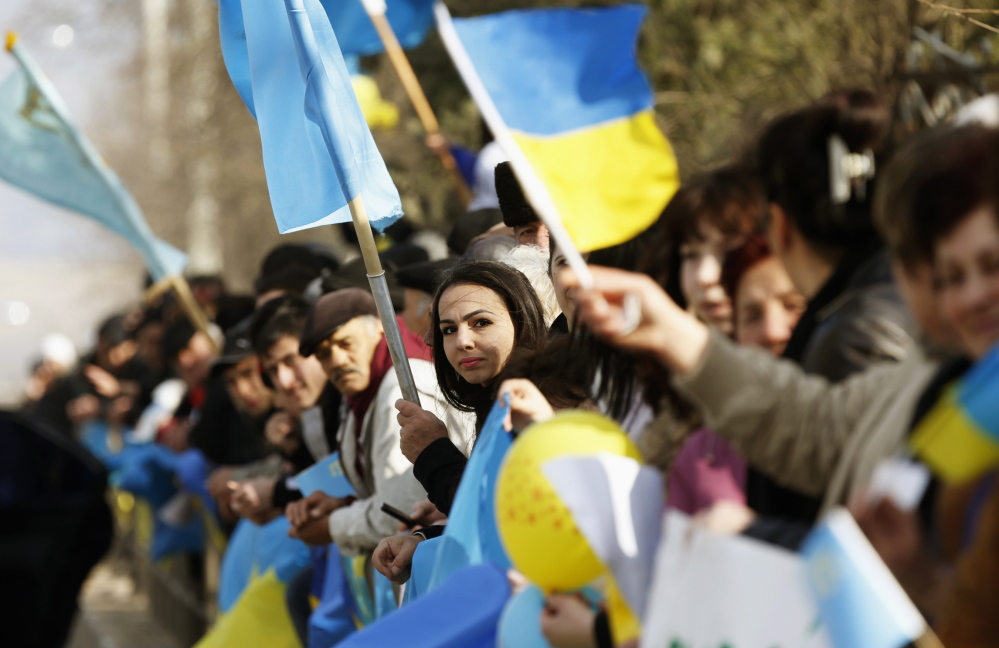SIMFEROPOL, Crimea — Vait Sitdzhemiliev brought his wife and three daughters to Crimea to honor a deathbed wish from his father six years ago. Now, waking Wednesday in a land officially annexed by Russia, the Crimean Tatar is worried about what is to come.
He fears for the eight tidy guestrooms he has built for sun-seeking vacationers. He worries about how Russian neighbors will behave now that they’re in Moscow’s embrace. Most of all, he frets over what lies ahead for his daughters, three hard-working students in their 20s.
“We Crimean Tatars have never gotten anything good from the Kremlin,” said Sitdzhemiliev, a 49-year-old entrepreneur.
Nonetheless, he has decided to stay. Crimea is his ancestral homeland: His parents were among the tens of thousands of Crimean Tatars deported en masse by Soviet dictator Josef Stalin, and he brought his family here from Uzbekistan six years ago on his dying father’s request.
Sitdzhemiliev’s choice mirrors that of the majority of members of minority populations in ethnic Russian-dominated Crimea – at least so far. Ukrainian Orthodox Archbishop Kliment of Simferopol and Crimea says that there has been no exodus by those fearful of Moscow’s takeover. But the future fills the archbishop with dread – and the present has shaken his faith in God: “The worst is that when people ask me to,” he said, “I can’t guarantee their safety.”
His network of clergy has reported the departure of about 200 people, among them three priests, in recent weeks, mostly from the farming country of northeastern Crimea. About 40 percent of Crimea’s population of 2 million is not Russian – mostly ethnic Ukrainians, Tatars and Belarusians.
“It’s not massive. Yesterday a family, today another, tomorrow yet another,” the archbishop told The Associated Press. If Crimeans ask him what to do, the 44-year-old Kliment advises the young to leave and the old to stay until somebody can return for them. He’s afraid that ethnic Ukrainians, who make up about a fourth of Crimea’s total population, may become a “human shield” exploited by the Kremlin and their allies to stymie any attempt by Ukraine to retake control.
Whatever the future brings, the archbishop said, “I’ll be here to the last.”
Members of the ethnic Russia majority were jubilant over Crimea’s official change in status, which the United States and other Western nations are refusing to recognize because they dispute the legality of the secession referendum.
People from other ethnic groups – and Crimea has more than 100 by some counts – are staying for several reasons, Kliment said. First among them is economic.
Send questions/comments to the editors.



Success. Please wait for the page to reload. If the page does not reload within 5 seconds, please refresh the page.
Enter your email and password to access comments.
Hi, to comment on stories you must . This profile is in addition to your subscription and website login.
Already have a commenting profile? .
Invalid username/password.
Please check your email to confirm and complete your registration.
Only subscribers are eligible to post comments. Please subscribe or login first for digital access. Here’s why.
Use the form below to reset your password. When you've submitted your account email, we will send an email with a reset code.